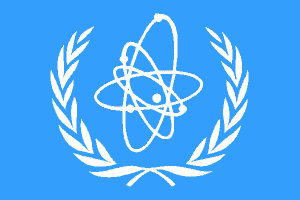 Iran's Foreign Ministry says the International Atomic Energy Agency (IAEA) should clarify what measures it will take once Tehran allays the agency�s concerns regarding the Iranian nuclear energy program.
Iran's Foreign Ministry says the International Atomic Energy Agency (IAEA) should clarify what measures it will take once Tehran allays the agency�s concerns regarding the Iranian nuclear energy program.The Iranian Foreign Ministry�s Spokesman Ramin Mehmanparast said on Tuesday that the UN nuclear agency should clarify its concerns about Iran�s nuclear energy program and the measures it would take once these concerns are allayed by Tehran in order for the Islamic Republic to fully enjoy its nuclear rights.
�If it is clarified within a general framework what measures will be taken after the removal of the concerns, it will be a lot easier to follow the issue; however, if no end is in sight, we will always be relieving the concerns and the other side will keep coming up with new ones,� the Iranian official said.
Mehmanparast added that Iran is committed to its obligations under the nuclear Non-Proliferation Treaty (NPT) and the country�s nuclear activities are aimed at obtaining achievements that would be conducive to the Islamic Republic�s progress.
Top officials from Iran and the IAEA held talks over the Islamic Republic�s nuclear energy program on December 13.
Following the meeting, IAEA Deputy Director General Herman Nackaerts said progress had been made during the talks, adding that more negotiations are due with Iran on January 16.
Referring to Iran�s talks with the P5+1 (Britain, China, France, Russia, and the United States plus Germany), Mehmanparast said no agreement has been made regarding the venue and date of upcoming negotiations.
Iran and the P5+1 have held several rounds of multifaceted talks mainly over the Iranian nuclear energy issue.
The United States, Israel and some of their allies have accused Iran of pursuing non-civilian objectives in its nuclear energy program.
Iran argues that as a signatory to the NPT and a member of the IAEA, it is entitled to develop and acquire nuclear technology for peaceful purposes.
Unrest in Syria
Commenting on his recent trip to Turkey, Mehmanparast said �regional developments, bilateral ties and particularly the issue of Syria� were among the topics discussed with the Turkish officials.
Turkey has agreed to Iran�s six-point peace plan for settling the Syrian crisis, Mehmanparast said, adding, �common principles� on how to resolve various crises in regional countries were examined during the talks.
On December 16, Iran unveiled the details of its six-point plan. The proposal calls for an immediate end to all armed violence in the Arab country. Iran�s proposal also urges talks between the Syrian government and the representatives of all Syrian groups in order to form a national reconciliation committee.
The Iranian official warned regional countries against the spread of the crisis in Syria to the other parts of the region, saying, �All regional countries can be the next target of this plot; therefore, the best solution is supporting the rights of [the Syrian] nation by ending conflicts, holding national talks, holding elections and yielding to the nations� will; and no one should decide on behalf of the Syrians.�
Many people, including large numbers of security forces, have been killed in the turmoil that began in Syria in March 2011.
Rohingya Muslims in Myanmar
Pointing to the plight of the Rohingya Muslims in Myanmar, Mehmanparast said Iran�s Foreign Ministry has made many efforts to facilitate the dispatch of humanitarian aid to the Muslim people of the Southeast Asian state.
He expressed hope that an Iranian parliamentary delegation accompanied by Iranian Foreign Ministry officials would be able to visit Myanmar and examine the situation of the Rohingya Muslims in the country.
Rohingya Muslims have faced torture, neglect and repression in Myanmar for several decades. Hundreds have been killed and thousands displaced in attacks by Buddhist extremists.
Myanmar�s government has been blamed for failing to protect the Muslim minority.
Rohingyas are said to be Muslim descendants of Persian, Turkish, Bengali, and Pathan origin, who migrated to Myanmar as early as the 8th century.
By Press TV
The Iran Project is not responsible for the content of quoted articles.










